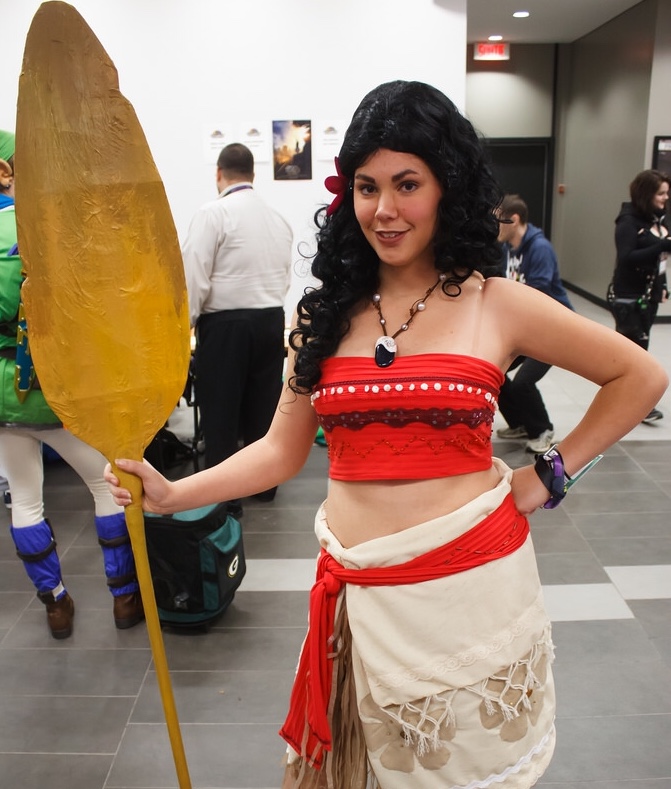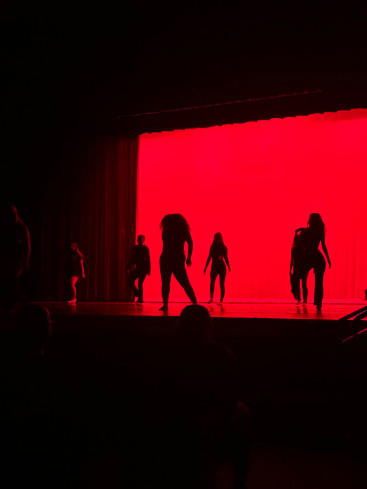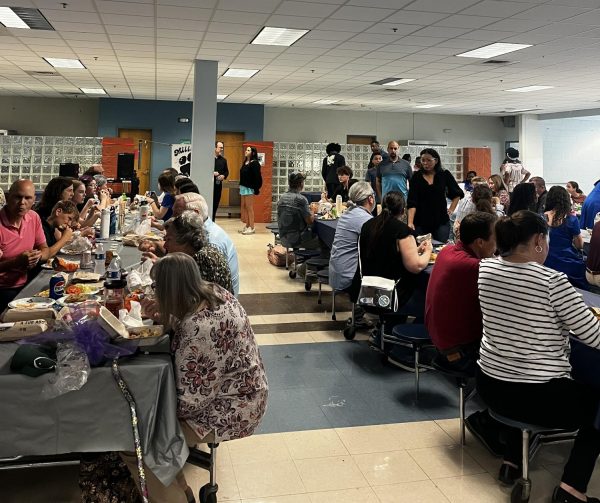It’s Debatable: Cultural sensitivity vs. free speech
Why dress as me when you can be you?
Although it might not seem outright offensive, the ensemble sported in this picture mimics the Polynesian character Moana. Many costumes similar to the one pictured have sparked continued debates this Halloween as opposers argue that dressing to mimic a particular race or characteristic of a culture can be disrespectful to those who identify with the group.
October 26, 2017
Halloween is traditionally seen as a day of fun that involves dressing up and storming the streets in search of goodies, but in more recent years the question of whether a costume is culturally appropriative has come to light. Cultural appropriation is the act of mimicking aspects of a culture in a way that could be considered disrespectful. Those who culturally appropriate often do not fully understand the elements that they are “borrowing,” which can oftentimes translate to the individual disrespecting a culture as a whole. Many popular Halloween costumes have been labeled as off limits due to their seemingly discriminative nature, but at the same time, does this interfere with our right to free speech? Well, it’s debatable.
This question was posed to the students at Millbrook to bring their viewpoints into consideration regarding the issue in question. In a sample group of 50 students, nearly 53% of the participants surveyed responded that they did not feel cultural appropriation is issue of priority in today’s society, as it is everyone’s first amendment right to have free speech. Some of the students who answered argued that cultural appropriation goes hand-in-hand with cultural appreciation. Junior Banks Scudder contended that “Most of the people dressing up for Halloween are little kids who idolize different TV or movie stars just because they think they are cool. There’s nothing wrong with the character being Indian because kids don’t always see color.” Although this is likely true, over one quarter of the students surveyed held the counter opinion that, as a society, we lack a sense of cultural sensitivity. These responders argued that cultures and races are not costumes and that they should be avoided at all costs. Even major corporations, including Disney, have felt the pressure to become more aware of the cultural or racial messages that they promote. Just this year, Disney was reprimanded for their debut of certain kids’ attire and costumes, which represented featured characters in their latest film, Moana. These items, sold on the Disney online store, mirrored racial characteristics of those of Polynesian origin. In turn, the company felt compelled to issue a recall on all the costumes and items that could be considered racially offensive. Stereotypes are undoubtedly harmful and sometimes what appears to be little, harmless jokes or acts can be taken too far. However, were the recalled items truly an instance of cultural appropriation or should Disney be given a pass as their only intention was to bring joy to the fans of the the movie?
Some participants in the survey held a neutral opinion including cheerleader Gianna Monique who claims that “Cultural appropriation is not always meant to be harmful. Children’s Halloween costumes are not supposed to be intentionally offensive. If someone’s daughter wants to dress up as a princess that is from another cultural background, then it is ok.” However, she also noted that “People should still be mindful of how their choices could upset someone.” The answer to the question of whether cultural appropriation is or is not seen as an issue in regards to our choices in Halloween costumes can not be definitely stated, but there seems to be a list of unwritten guidelines for what is acceptable and what may be considered crossing the line of being inadvertently offensive or racist. Ultimately, we must make sure to be cognizant of how we dress throughout the year, especially during Halloween; but not let our costumes prevent ourselves or others from enjoying a night of tricks and treats.












